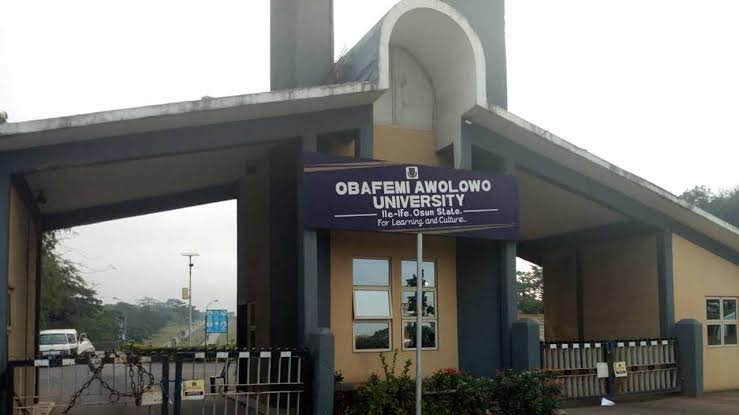Technology in Nigerian Schools: Opportunities and Challenges
Technology is rapidly transforming the world today in every sector of the economy, and education is not an exception.
The use of technology in schools is becoming increasingly popular, and it is no longer a luxury but a necessity in the educational sector.
In Nigeria, technology has presented both opportunities and challenges in the education sector.
While technology promises to revolutionize the way education is delivered in the country, there are challenges that must be addressed to ensure that technology is adequately harnessed for the benefit of Nigerian schools.
In this article, we explore the opportunities and challenges of technology in Nigerian schools and possible ways to address them.
Opportunities of Technology in Nigerian Schools
1. Improved Learning Outcomes
Technology has the potential to improve learning outcomes in Nigerian schools. With the use of technology, students have access to a wide range of educational materials that enhances their learning experience.
Technology provides access to the latest information and resources, which can help students better understand the concepts they are studying.
For instance, online videos, animations, and simulations can be used to explain complex scientific concepts and theories to students easily.
Technology can also help students learn at their own pace, which can lead to improved learning outcomes.
2. Access to High-Quality Learning Materials
Technology has made it easier for Nigerian schools to access high-quality learning materials.
With the internet, schools can access educational resources from all over the world, thereby providing students with a more comprehensive education.
Nigerian schools can now tap into world-class resources, and students can use them to gain a broader understanding of different subjects.
3. Greater Engagement
Technology has the potential to make learning more engaging for Nigerian students.
Traditional teaching methods can be monotonous, leading to a lack of interest on the part of the students.
However, technology makes learning more engaging by providing interactive learning experiences.
Gamification, for instance, is one such interactive approach that is becoming popular in Nigerian schools.
By using games to teach, students become more interested in learning, leading to better learning outcomes.
4. Improved Communication and Collaboration
Technology has made it easier for Nigerian schools to communicate with students, teachers, and parents.
With the use of emails, social media, messaging apps, and learning management systems, schools can easily share information and updates with all stakeholders.
This improves collaboration and enhances the learning experience
5. Cost Savings
Technology has the potential to save Nigerian schools a lot of money in the long run. With the use of technology, schools can reduce their reliance on physical resources, such as textbooks and printed materials.
Online resources are often cheaper than physical resources, and they can be accessed from anywhere without the need for physical transport, storage, and maintenance.
Challenges of Technology in Nigerian Schools
1. Insufficient Infrastructure
One of the major challenges of technology in Nigerian schools is insufficient infrastructure.
Many Nigerian schools are not adequately equipped with the necessary infrastructure, such as computers, projectors, and high-speed internet.
This lack of infrastructure makes it difficult for schools to implement technology effectively.
2. High Cost of Technology
Another challenge of technology in Nigerian schools is the high cost of technology.
The cost of devices such as laptops, tablets, and projectors is often high, and many schools cannot afford to purchase them.
This high cost puts technology out of reach for many Nigerian schools, especially those in rural areas.
3. Lack of Training
Effective use of technology in Nigerian schools requires adequate training for teachers and students.
However, many Nigerian schools do not provide adequate training to their staff and students.
This lack of training can be a major barrier to effective use of technology in Nigerian schools.
4. Inadequate Power Supply
A major challenge of technology in Nigerian schools is inadequate power supply.
Many Nigerian schools experience frequent power outages, which can make it difficult for schools to use technology effectively.
This challenge can be addressed by using alternative sources of power, such as solar energy.
5. Lack of Technical Support
Effective use of technology in Nigerian schools requires technical support.
Many Nigerian schools do not have access to technical support, making it difficult to maintain and repair devices when they break down.
This can lead to a waste of resources and discourage schools from investing in technology.
Possible Solutions
1. Adequate Funding
Providing adequate funding is one of the most important steps in addressing the challenges of technology in Nigerian schools.
The government, private organizations, and donors should provide funding to schools to purchase and maintain technology equipment.
2. Training and Technical Support
To effectively use technology in Nigerian schools, teachers and students need adequate training and technical support.
Schools should invest in training programs for their staff and students and provide technical support to help maintain and repair devices.
3. Infrastructure Development
Improving infrastructure is crucial for effective use of technology in Nigerian schools.
Schools should be equipped with the necessary infrastructure, such as computers, projectors, and high-speed internet to implement technology effectively.
4. Use of Alternative Sources of Power
Inadequate power supply is a major challenge of technology in Nigerian schools.
Schools should invest in alternative sources of power, such as solar energy, to ensure that technology can be used effectively.
5. Partnerships and Collaborations
Partnerships and collaborations with private organizations and donors can help address the challenges of technology in Nigerian schools.
Through collaborations, schools can access funding, training, technical support, and infrastructure.








